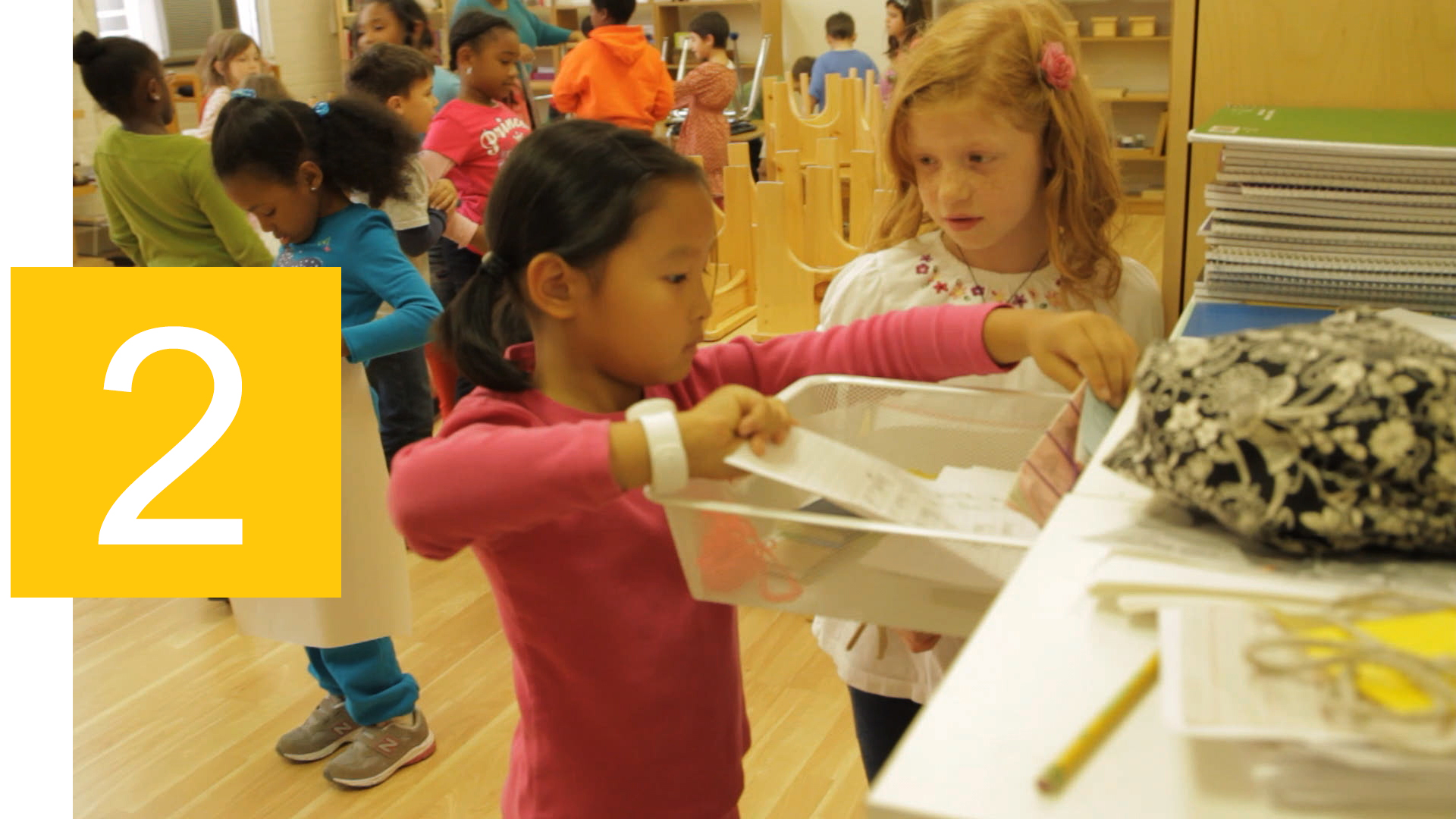Capturing Ordinary Days:
Socialization in the Primary Setting
The Montessori primary prepared environment addresses the needs of the young child. The emphasis on natural peer-to-peer social interactions supports unfolding social-emotional development. An intense concentration on spoken language and cultivating the foundation skills of literacy supports the child in learning how to understand and communicate with others. The teacher’s task is to observe and support each child in her individual journey. The multiaged grouping inside the classroom supports her in this task by exposing each child to a variety of social roles.
PEER TO PEER LEARNING (9:39)
Nested primary communities of multi-aged children automatically create and expose children to a variety of social roles.
RITUAL OF THE MEAL (5:58)
Opportunities for children to practice a variety of social tasks and develop relationships are woven into the daily rituals of a Montessori primary environment.
Shorts: Socialization in the Primary Setting
1. Snack (5:17)
2. Clean Up, Set Up (5:20)
“The introduction of liberty in the classroom…enables the child to live as a free, independent, active member of a miniature but real society. He is presented with continued opportunities of practicing that highest of all arts, the art of living together in right relations with one's fellow men…all day long and every day, in their free social contacts with each other and with the directress and with visitors, the children have innumerable opportunities of putting into practice those little social courtesies that oil the wheels of social life, until they become habitual.” From E. M. Standing, Maria Montessori: Her Life and Work, chapter 17.
Delving Deeper Into Our Craft:
Socialization in the Primary Setting
The Timeless Human Spirit
by Renilde Montessori
Presented at the 1988 International Study Conference, “Education for the Twenty-First Century,” in Washington D.C., this seminal lecture by the late Renilde Montessori captures the essential vision of Montessori education as a timeless support to human development. Renilde Montessori’s prescient words, spoken years before the turn of the century, describing the needs of the human spirit and the challenges confronting human civilization, still ring true today... READ MORE
EVERYDAY MUSIC (10:59)
Capturing ordinary days in Montessori environments... Children are exposed to the fundamentals of music on a daily basis through integrated materials and activities.
In Her Words
In her book, The Secret of Childhood, Dr. Montessori writes about her experiences in the original Casa dei Bambini and dignity:
“One day I decided to give the children a slightly humorous lesson on how to blow their noses. Since after I had shown them different ways to use a handkerchief, I ended by indicating how it could be done as unobtrusively as possible. I took out my handkerchief in such a way that they could hardly see it and blew my nose as softly as I could…” READ MORE
Playful Education and Montessori Learning
Read about “Playful Education and Montessori Learning,” an article by Dr. Angeline Lillard.







